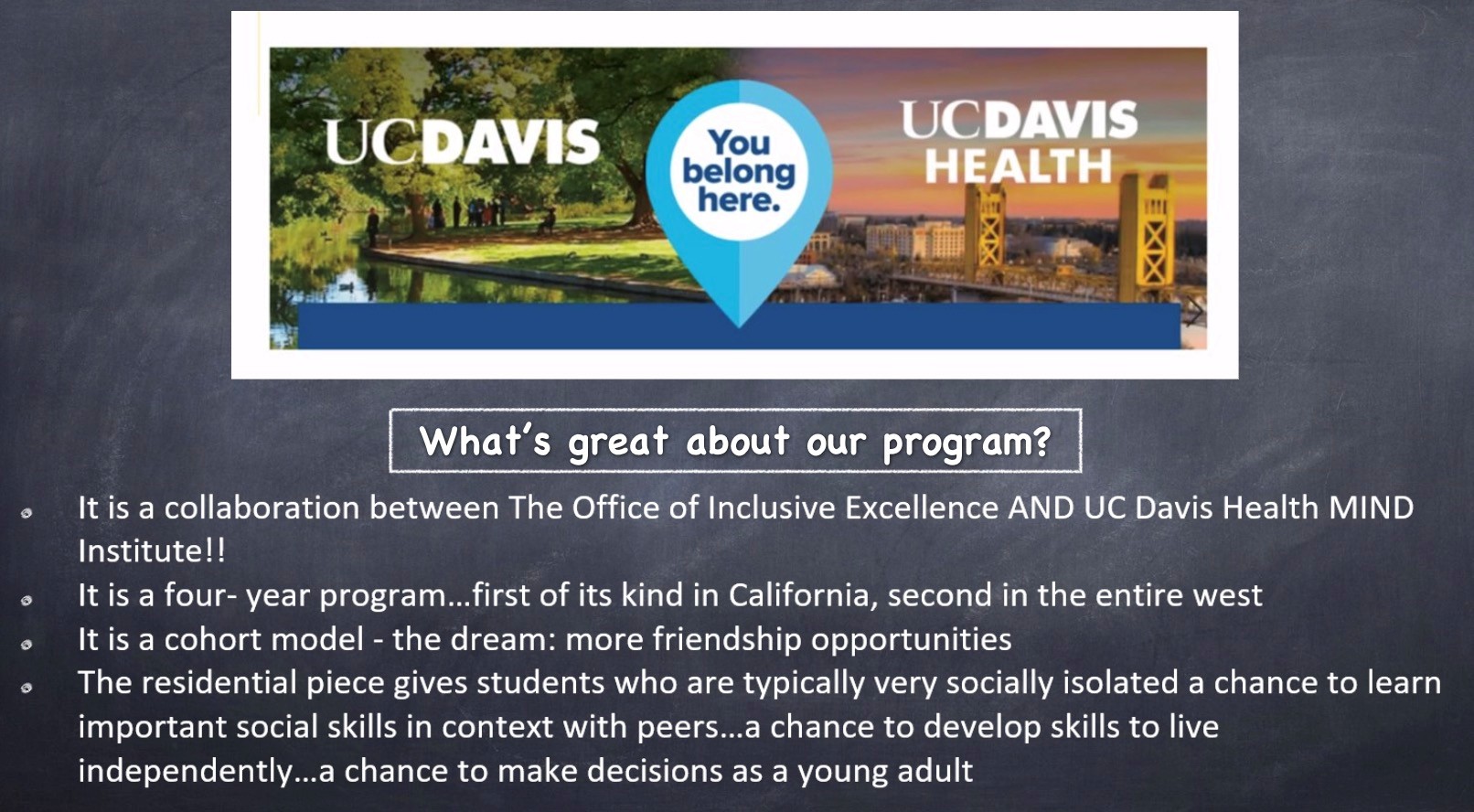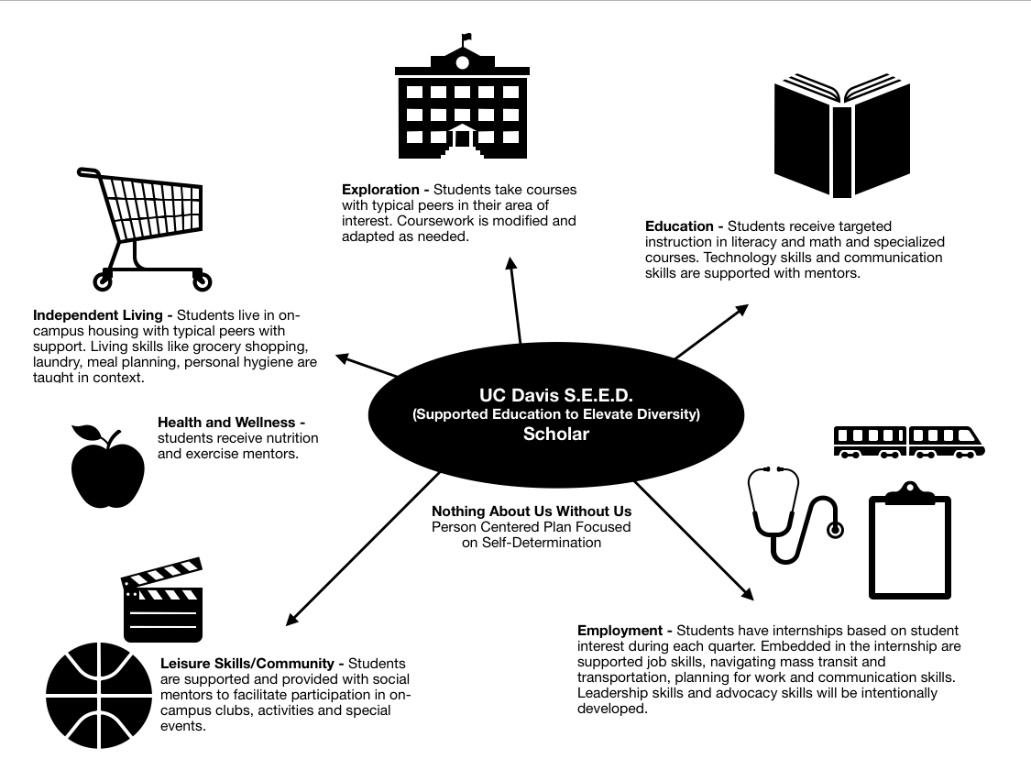Skip to main content
Rationale for Program
- 66,000 college-age (18-26) individuals with intellectual disability (ID) in California
- Poor employment outcomes for Californians with ID
- 3% of adults with ID receive a living wage working side-by-side with typical peers
- >90% of adults with ID live in poverty
- Young adults with ID express largely same hopes and goals as their typically developing peers
- UC Davis Redwood SEED Scholars Program is designed to improve these outcomes and serve as a model for other campuses in California
- First of its kind in California
Program Basics
- Partnership between the UC Davis MIND Institute, UC Davis Office of Inclusive Excellence and UC Davis Continuing and Professional Education
- 4-year program
- Scholars earn a UC Davis Redwood SEED Scholars Integrated Studies Digital Credential approved by UC Davis Continuing and Professional Education
- 12 students enrolled per year
- Individualized and customized for each student
- Combination of UC Davis credit-bearing courses and program-specific courses
- Inclusive residential living: two years in the dorms, two years in apartments
- Inclusion in UC Davis events, campus clubs, sports, organizations and faith communities as well as full participation in the larger Davis community
- Internship and employment options at UC Davis, UC Davis Health, state government, local businesses and schools, and Fortune 500 companies
- Supports for success
- Undergraduate and graduate student peer mentors in five core areas: Academics, Employment, Health and Wellness, Independent Living, Social Inclusion
- Person-Centered Planning Meetings twice a year
- Davis faculty in inclusive practices and universal design
- Training of housing staff, food service staff, police in inclusive practices
Program Funding
- U.S. Department of Education, Model Comprehensive Transition and Postsecondary Programs for Students with Intellectual Disabilities Program (TPSID – CFDA 84.407A)
- $2.1 million (total costs, 8% F&A, 2020-2025)
- MIND Institute and Office of Inclusive Excellence in-kind - $100,000+
- Philanthropy - $500,000 5-year pledge
- Ongoing philanthropy and strategic development
- Students work with the Department of Rehabilitation, Regional Centers and use Social Security to pay tuition, fees, room and board, technology and transportation

